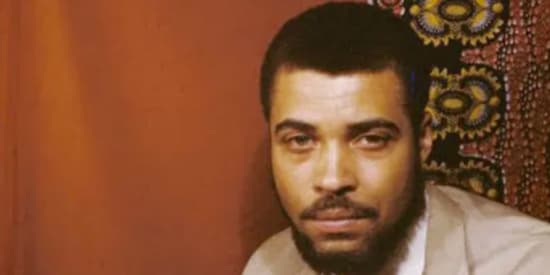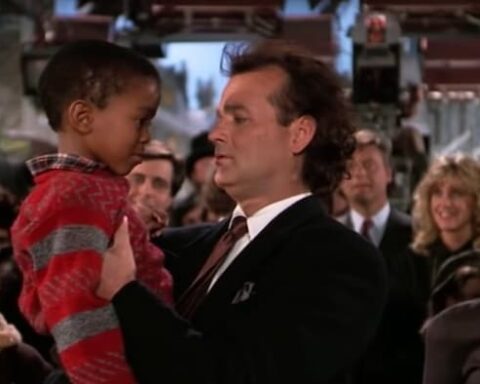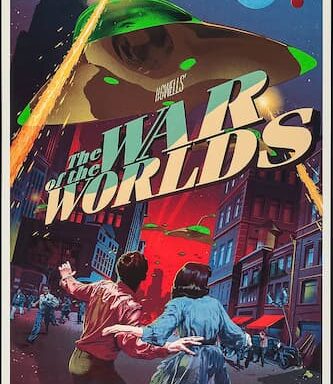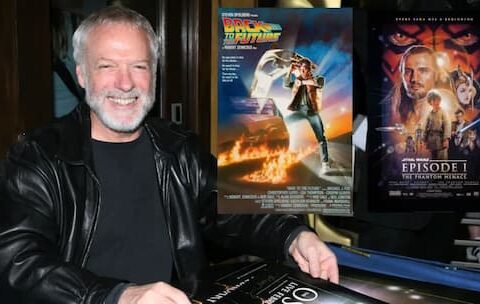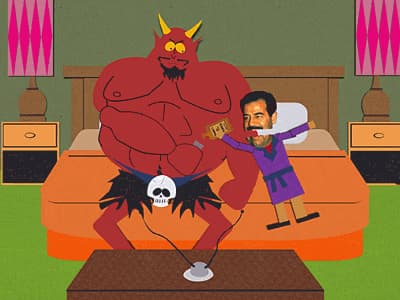Very few people would deny that Darth Vader is one of the greatest characters in cinema history.
Certainly one of the most iconic. He also typically tops ‘Greatest Villain’ lists in magazines and websites.
You could come up with various factors for why Vader is such an enduring figure in our cinematic or mythological landscape.
But when you really think about it, you could argue that about 80 percent of what makes Darth Vader is James Earl Jones’s voice.
Maybe higher than that.
Certainly, the visual impact of Vader and the costume design is a big factor: as is the physically imposing nature of David Prowse in the suit.
And there’s the storytelling/mythological aspect of course.
But you cannot fathom any other voice other than James Earl Jones delivering those lines throughout those three movies.
It might stand as the most iconic voice acting contribution in the history of cinema.
And yes, Jones did lots of other work for decades. And he would probably prefer to be remembered for some of those things. But let’s be completely honest: it’s Darth Vader that most of us will remember him for.
I remember as a child visiting my grandfather’s house and he was watching Franco Zeffirelli’s Jesus of Nazareth mini-series – which everyone seemed to be really into at that time. And I got excited when I saw James Earl Jones as one of the three Magi from the East and heard him speak. ‘That’s Darth Vader!’ I exclaimed excitedly, recognising that voice immediately.
Everyone told me to shut up – they had no idea what I was talking about: and I was ruining the birth of Jesus.
But getting back to the point: you cannot understate how important Jones’s contribution was to Star Wars.
Jones imbued palpable life into that character: turning what could’ve easily been a less potent presence into something engaging and formidable.
It’s strange to think that Jones was so humble about his own role in the production that he declined to even be credited in the first instance: insisting that he was just a minor technical player in the equation.
By the time of Return of the Jedi, he seemed to have come around to understanding the value and significance of his contribution more.
But he still downplayed it over the years, seeming to regard his recording sessions as not real acting or worthy of much note.
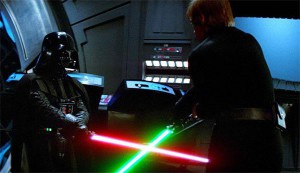
Which I find really interesting, for such an iconic and universally recognised piece of voice acting.
Jones wasn’t simply reading lines. In the second and third installments of the original trilogy, you can really hear all the nuances and feelings behind the dialogue.
Which is so vital for a character that doesn’t have any facial cues or ability to emote visually, being otherwise an unchanging mask.
It was therefore all the subtle undercurrents and nuances in Jones’s voice acting that imparted Vader with character and personality: and allowed us to understand when he was angry, or when he was experiencing doubt or uncertainty, or when he was being contemplative.
Especially towards the end of Empire Strikes Back and the late stages of Return of the Jedi, where Vader’s uncertain emotional state is so crucial to the flow of the story, what Jones is able to impart is almost magical.
Sure, the visual directing and staging plays a big part, as does John Williams’ genius use of subtle musical indicators in key moments: but Jones’s nuanced deliveries and inflections are absolutely vital.
Jones as a performer might downplay his role: but we as an audience absolutely needed him. And those films needed him.
His voice acting in those movies is as vital to their power as the groundbreaking special effects, John Williams’ masterful scores, or Lucas’s epic mythologizing.
Which, for someone who famously once had a stammer, and was even functionally mute at one stage of his life, is pretty extraordinary.
Jones was also one of the very first African-American actors to gain prominence in mainstream cinema at a time when black actors were simply not afforded significant roles.
His earliest tastes of fame happened to coincide with the events of the Civil Rights movement in the US. He apparently didn’t involve himself directly in the movement, later claiming that his career commitments kept him out of politics and activism: but that he had sympathies in the Malcolm X direction.
Jones said in a later interview that he, with hindsight, considered his success as a black actor at that time a small form of participation in the advancement of African-Americans in cultural life.
Which could sound a tad conceited: but it does bring to mind Nichelle Nichols’ story about Martin Luther King telling her to remain on Star Trek in the sixties, because her presence on the show had significance to race relations and perception.
But… back to Darth Vader.
While it’s understandable for someone like Jones – a screen and stage actor for decades – to underestimate the significance of providing some voiceover for a fantasy film, I hope that in later years he came to understand the impact and cultural resonance of what he contributed to that enterprise.
He probably did: as it must’ve eventually been impossible to escape or overlook the prevalence of Darth Vader and Star Wars in contemporary culture.
That’s the impression you get from watching interviews of him in later years.
Like a lot of actors who become attached to a specific pop culture phenomenon, he probably wished he was more remembered for his broader body of work.
But, like Leonard Nimoy, he probably made his peace with it: and probably recognised that his vital connection to an iconic creation offers more cultural immortality that any stage play he ever did.
RIP, James Earl Jones.
